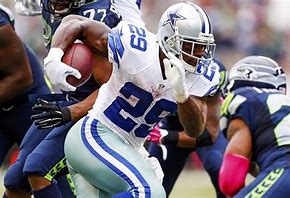
The Dallas Cowboys recently made a significant change to their running back rotation by promoting veteran Dalvin Cook from the practice squad to the active roster. This move indicates the team’s intention to revitalize its lackluster rushing attack, which has struggled throughout the season. The Cowboys currently sit at the bottom of NFL rankings in key rushing metrics, including total yards, yards per attempt, and overall rushing attempts. This has left their passing game under increased pressure and their offensive strategy unbalanced. By elevating Cook, a former star who was signed after a challenging season with the New York Jets, Dallas is hoping to add experience and a potential spark to its ground game.
Last season, Cook joined the Jets with high expectations, viewed as a veteran complement to rising star Breece Hall. However, he found little success, managing just 3.2 yards per carry, which was significantly below his career average. This decline, compounded by injury issues and an inconsistent offensive line in New York, led to his eventual release. Despite this recent underperformance, Cook has shown he can be a dynamic player, evidenced by his previous seasons with the Minnesota Vikings, where he was a Pro Bowler multiple times. The Cowboys are hoping a fresh start in Dallas will allow Cook to regain some of that form and bolster their offense.
Dallas’s move reflects both optimism and necessity. With lead running back Tony Pollard struggling to find consistency after returning from an injury, the Cowboys needed an alternative option. Adding Cook gives them another experienced runner who could potentially handle a significant workload and provide stability. Additionally, the Cowboys are aiming to keep their playoff hopes alive in a competitive NFC, and improving the running game will be essential to achieving that. Cook’s experience could help mentor younger backs on the roster, and if he can regain even a portion of his previous explosiveness, he may serve as a reliable option, especially in short-yardage situations or goal-line scenarios where Dallas has struggled.
However, this decision also raises questions about its potential impact. Cook’s recent performance with the Jets suggests that he may not be the explosive back he once was, and if he fails to adapt to the Cowboys’ offense, the rushing game could continue to struggle. Analysts are divided on whether Cook can provide the boost Dallas needs, with some pointing out that his reduced speed and durability might limit his effectiveness. Nonetheless, the Cowboys seem willing to take that risk, recognizing that their current setup has failed to yield results.
Overall, the Cowboys’ promotion of Dalvin Cook symbolizes both a gamble and a calculated attempt to strengthen their offense. As the season progresses, the effectiveness of this move will depend largely on Cook’s ability to adapt, regain some of his previous performance levels, and work within Dallas’s offensive scheme. If successful, this could help the Cowboys push forward, but if not, it may further expose their vulnerability in the run game and compel them to revisit their strategy in the future.